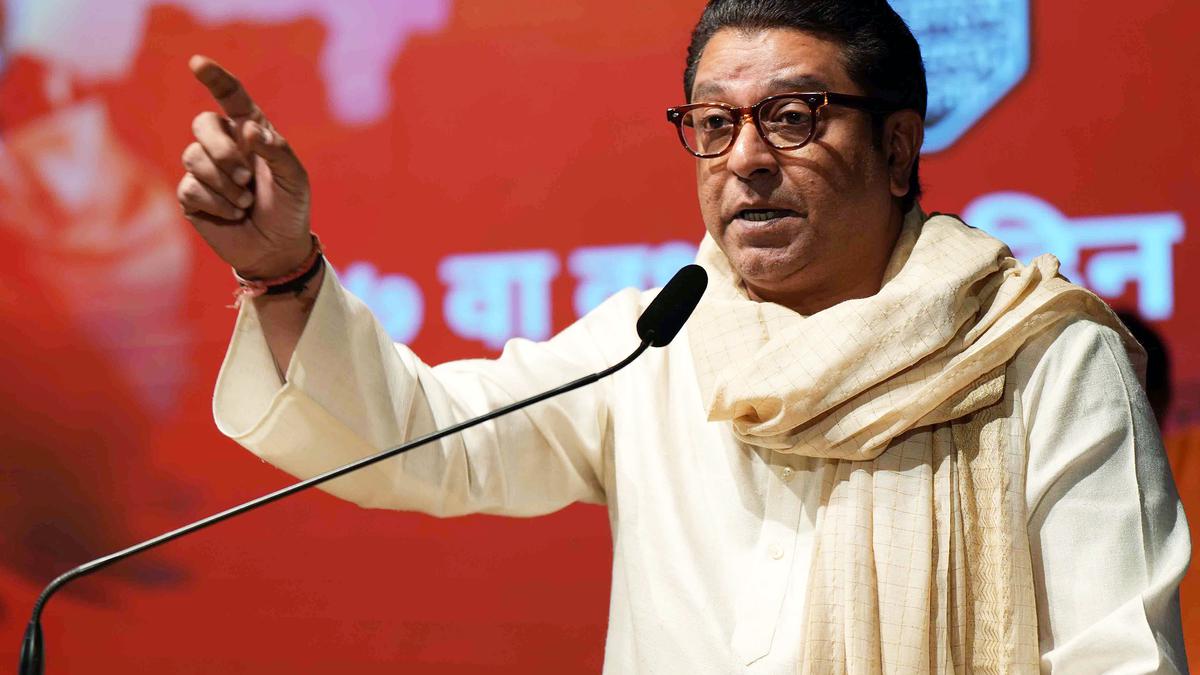
‘Will stay at home, but never compromise,‘ says Raj Thackeray on Maharashtra political scenario
The Hindu
Alluding to Nationalist Congress Party leader Ajit Pawar splitting the Sharad Pawar-led party to join the ruling BJP, Raj Thackeray said, “What is happening at the moment is deplorable and I will never do such a thing…I may have to sit at home, but will never compromise.”
Pune
Lashing out at the current political scenario in the State, Maharashtra Navnirman Sena (MNS) chief Raj Thackeray on Thursday said he would not compromise his political ideals even if he had sit out the forthcoming elections at home.
Mr. Thackeray, who is on a tour of the Konkan to rebuild his party’s fortunes, was speaking to his cadre at Chiplun in Ratnagiri district.
Alluding to Nationalist Congress Party (NCP) leader Ajit Pawar splitting the Sharad Pawar-led party to join the ruling Bharatiya Janata Party (BJP), Mr. Thackeray said: “What is happening at the moment is deplorable and I will never do such a thing…I may have to sit at home, but will never compromise.”
Exhorting his party workers to work with one mind, Mr. Thackeray, who is the estranged cousin of Shiv Sena (UBT) chief Uddhav Thackeray, said that he would spell out his stance on the current political developments by addressing a rally of his partymen in the next 15 days.
“All office-bearers of Maharashtra Navnirman Sena have to do what the party tells them to do, else they will not be permitted to remain in their posts… All party workers must work unitedly and with one mind,” said Mr. Thackeray, who has been attempting to shore up his party’s dwindling political fortunes.
Earlier, speaking after Mr. Ajit Pawar’s swearing-in ceremony (on July 2) following the NCP split, Mr. Raj Thackeray had blamed Mr. Sharad Pawar for having begun the politics of party-splitting in the State.













